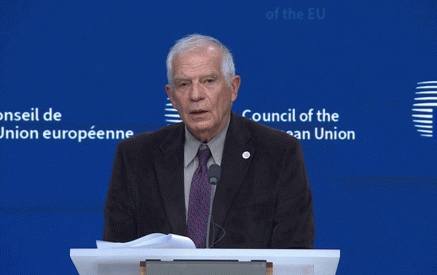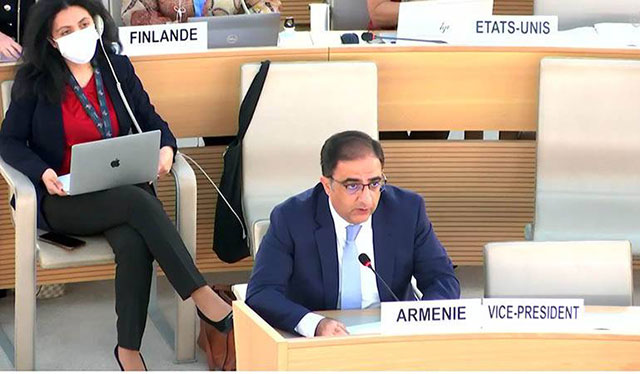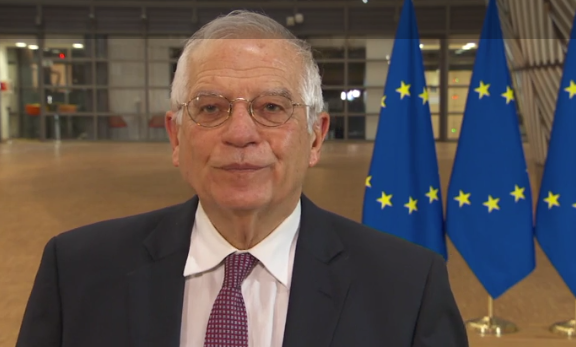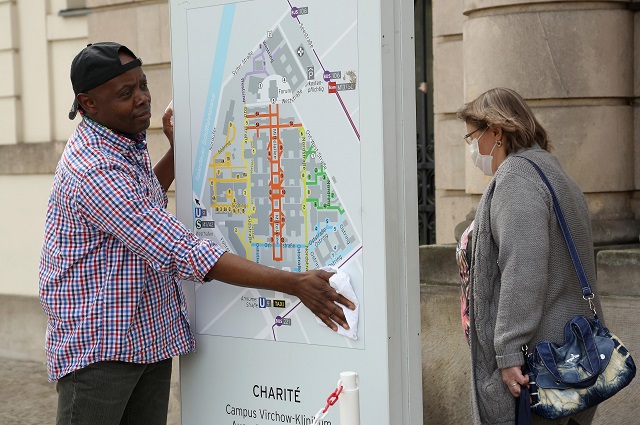The fight against racism is at the core of the common values that tie together the EU and the Council of Europe. As the respective debate currently gains salience in the public sphere, it is a good opportunity to remember the relevant initiatives of the two organisations. This is even more important as worrying phenomena of xenophobia, racism and ethnic profiling can still be identified in Europe.
As the High Representative Josep Borell stated on the occasion of the International Day for the Elimination of Racial Discrimination “Attacks within the European Union and abroad demonstrate that there is a continuous need to step up our efforts and actions to prevent hate crimes, discrimination, racism, xenophobia and related intolerance”. A 2018 report of the European Union Agency for Fundamental Rights has further substantiated this point. The report presented some worrying trends vis-à-vis the discrimination of black people in Europe. In particular, 30% of respondents said that they have been racially harassed, while 24% of respondents were stopped by the police in the five years before the survey. Among those, 41% felt they were subject to racial profiling. Finally, only 14 % of the most recent incidents of racist harassment have been reported to police or other services, while 63 % of victims of racist physical attack by a police officer did not report the incident to anybody. All the above clearly suggest that the problem of racism in Europe remains a matter of concern.
The EU has already in place a set of legislative acts aiming to mitigate this trend. First, it established, in 2008 the Council’s Framework Decision on combating certain forms and expressions of racism and xenophobia by means of criminal law. The Framework Decision has important legal implications. In particular, it ensures that such crimes are punishable by effective, proportionate and dissuasive criminal penalties throughout the European Union. At the same time, it fosters further intra-EU judicial cooperation in this field. The Commission’s 2014 report on the implementation of the Framework Decision concluded that a number of countries have not fully and/or correctly followed the provision of the Framework. Problems occurred in relation to the offences of denying, condoning and grossly trivialising certain crimes. Moreover, while most Member States have provisions on incitement to racist and xenophobic violence and hatred, these do not always seem to fully transpose the offences covered by the Framework Decision. Gaps were also observed in relation to the racist and xenophobic motivation of crimes and their legal punishment. The Commission published a guidance note on the practical application of the Framework in 2018 to advice member states on necessary improvements.
Another important legislative step for the fight against racism is the Race Equality Directive adopted in 2000. The Directive prohibits discrimination on grounds of race and ethnic origin and covers the fields of employment and occupation, vocational training, membership of employer and employee organisations, social protection, including social security and health care, education, access to goods and services, which are available to the public, including housing. Finally, the Directive called on all Member States to establish a specialised body for the promotion of equal treatment on grounds of race and ethnic origin.
Read also
In its 2012 assessment on the application of the Directive, the EU Fundamental Rights Agency suggested that the Directive entailed, for the first time, the introduction of a detailed non-discrimination regime covering the grounds of racial and ethnic origin in numerous EU countries, including Bulgaria, Cyprus, Estonia, Lithuania, Hungary, Poland, Romania, the Slovak Republic, Slovenia, and Spain. Nevertheless, the effectiveness of the Directive was difficult to gauge in measurable terms as the social partners had mixed views on it. The social partners from those Member States with pre-existing non-discrimination regimes tended to question the practical contribution of the Directive, given that national law was already in place. Among respondents from member states with less detailed regimes there was a tendency to question the necessity of the directive, as discrimination was not seen a significant problem. Despite such divergent views, they all agreed that the Directive had extensive symbolic value It provided a firm and unambiguous message against any type of racial or ethnic origin discrimination; as a trade union representative put it “The directives have helped to implement the diversity policies and provided strong arguments to legitimate them”.
In addition to all the above, the EU has taken active steps to fight xenophobia and racism beyond its borders by funding numerous project: it has helped to empower Roma people by improving their access to justice, to fight hate crimes in non-homogenous Jewish-Arab mixed cities and to provide free legal and psychosocial aid to marginalised communities.
The Council of Europe has also taken important steps to fight racism and xenophobia. With that goal in mind, it has established, the European Commission against Racism and Intolerance (ECRI(link is external)) in 1994, a unique human rights monitoring body, focused on the fight against racism, discrimination (on grounds of “race”, ethnic/national origin, colour, citizenship, religion, language, sexual orientation and gender identity), xenophobia, antisemitism and intolerance in Europe. ECRI’s activities include country-monitoring, work on general themes and relations with civil society and equality bodies.
ECRI’s monitoring activities include country visits in member states and recommendations for dealing with any problems of racism and intolerance that might emerge. Vis-à-vis general themes, ECRI issues General Policy Recommendations addressed to the governments of all member states. These recommendations provide guidelines which policy-makers are invited to use when drawing up national strategies and policies. ECRI has adopted General Policy Recommendations on various themes including, combating racism, xenophobia, antisemitism and intolerance, combating racism and intolerance against Roma/Gypsies, combating intolerance and discrimination against Muslims and combating hate speech.
ECRI is also central to the cooperation between the EU and the Council of Europe in the field of anti-discrimination and the fight against racism. ECRI is monitoring all monitoring all 27 EU member-states and its suggestions and assessments constitute reference points for the EU. Moreover ECRI has granted observer status to the EU. Subsequently, representatives of the European Commission regularly attend ECRI’s plenary meetings. While not having the right to vote, the EU’s participation ensures that the action of the two bodies are well coordinated and complementary to each other. Moreover, the two organisations have sought to cooperate further during the pandemic, with ECRI’s secretariat having an exchange of views with the director of the EU’s Fundamental Rights Agency and with the EU Special Representative for Human Rights. The two sides discussed the impact of the COVID-19 pandemic and related government action on various groups. Moreover, they exchanged views on LGBTI issues, antisemitism, anti-Muslim hatred and ways of better communicating the human rights/equality message.
The mutual interest of the EU and of the Council of Europe on fighting racism is also reflected in a number of joint programs. The upcoming project on strengthening the institutional capacity of the judiciary on anti-discrimination issues in line with European standards in Turkey along with the ROMACT program(link is external) for building capacity at local level for the integration of the Roma in numerous Council of Europe member-states are characteristic examples of this mutual interest of the two organisations. Within the framework of the regional project(link is external) “Strengthening access to justice through non-judicial redress mechanisms for victims of discrimination, hate crime and hate speech in Eastern Partnership countries”, the CoE and the EU will organise five webinars(link is external) in June and August on combating discrimination and working with victims in Eastern Partnership countries.
As the HR/VP stated the EU as a whole condemns violence and racism of any kind, while it also encourages the de-escalation of tensions. In view of this goal, its cooperation with the Council of Europe should be strengthened in the future in order to further mitigate racism and discrimination in Europe.
European Union
Main photo: EC Audiovisual Service




























































